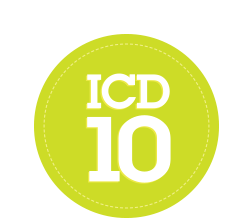Add one more splash of bad news to the cascade that has spilled out since the Patient Protection and Affordable Care Act (PPACA) became law in 2010. The NFIB Research Foundation’s just-released study shows that small business is deeply pessimistic about the changing face of American healthcare as the new law sinks in.
Add one more splash of bad news to the cascade that has spilled out since the Patient Protection and Affordable Care Act (PPACA) became law in 2010. The NFIB Research Foundation’s just-released study shows that small business is deeply pessimistic about the changing face of American healthcare as the new law sinks in. In the survey, business owners note some troubling trends in the health-insurance market and don’t expect things to improve with time.
Three broad conclusions emerge from the survey: (1) For small business, the health insurance market deteriorated somewhat during the law’s first year; (2) Business owners do not expect the healthcare environment to improve with time; and (3) Small businesses are seeking safer harbors, including defined contribution plans and abandonment of employer-sponsored insurance altogether. We can add a smaller fourth conclusion: (4) The small business tax credit doesn’t appear to have much impact on the number of businesses offering coverage.
“The new study is entitled Small Business and Health Insurance: One Year after Enactment of PPACA; the author is William J. Dennis, Jr. For data, the Foundation commissioned the Mason-Dixon organization to conduct a survey of 750 small businesses, defined here as those with 50 or fewer employees, randomly selected from Dun and Bradstreet’s files.”
Things are deteriorating slightly. For small employers, the first year of PPACA was largely a period of stasis, with some trouble on the horizon. There was a small deterioration on the rate of insurance provision by small businesses. At the time of the survey, 42% provided insurance. Of those firms offering insurance, around 1% had just added coverage in the previous year. Among businesses that did not offer, around 4% had dropped coverage in the previous year. Around 12% of those businesses offering said either that their prior policy had been terminated or that it would not be available for renewal. This is one more indication of the hollowness of the promise that “If you like the insurance you have, you can keep it.”
It’s not going to get better. One of the few positive notes in the survey is that 73% of small employers polled thought that PPACA would result in more people with insurance coverage. Otherwise, majorities of business owners familiar with the law said that PPACA:
- won’t reduce paperwork or simplify the provision of healthcare (79%);
- will increase taxes (77%);
- will increase federal budget deficits (71%);
- will infringe on the rights of Americans (65%);
- won’t slow the rate of health insurance cost increases (65%);
- won’t improve the overall health of the American public (59%);
- will lead to a government takeover of healthcare (58%); and
- will separate doctors and patients (50%).
In general, the negative sentiments were more widely held by those businesses currently offering insurance than by those who do not offer.
What can small business do? The big question, then, is how small businesses will react to the new environment. The most important question is how many businesses will drop coverage altogether, leaving employees free to purchase health insurance on their own in the new exchanges scheduled to open in 2014. Under PPACA, small employers (those with 50 or fewer employees) can offer coverage or not without penalty. If they do, an employee cannot leave the employer plan and seek government subsidies in the exchanges unless he meets certain criteria. On the other hand, if a small business drops coverage, all its employees can go to the exchange and, if they qualify, apply for subsidies.
PPACA’s authors clearly assumed that a large percentage of small employers would continue offering coverage because of market pressures. However for some firms — particularly those with many low-wage workers — the exchange subsidies will be a powerful draw. The Foundation’s survey showed that if employees began dropping company plans to purchase insurance in the exchanges, then 57% of small employers are likely to explore dropping coverage altogether. 43% said a majority of employees would have to drop coverage before they eliminated their company plan. For many small businesses, dropping coverage and sending employees into the exchanges can mean higher profits for the business and higher take-home pay for the employees. In effect, this option will allow some businesses to pass their employees’ insurance costs off onto the government. This could significantly increase the federal government’s budget deficit.
One option that has been discussed is allowing businesses to shift toward defined contribution plans. Currently, a company and its employees get tax breaks if the company purchases the employee’s health insurance. But if the company drops coverage, the employees lose these tax benefits. Defined contributions would allow businesses to give employees pre-tax dollars with which to purchase insurance in the exchanges.
According to the Foundation’s survey, 68% thought defined contribution plans would result in more employees having health insurance. 63% of small businesses thought that a defined contribution option would give employees greater ability to tailor their insurance to their individual needs.
Small business health insurance tax credit. Finally, the survey provided additional evidence that PPACA’s small business health insurance tax credit is of little consequence in expanding coverage. NFIB estimates that only around 5% of small businesses employing fewer than 50 employees would qualify for the full credit and that only around 20% would qualify for a partial credit.
According to the new study, 52% of small employers had never heard of the credit and many of those did not know whether they qualified for the credit.






